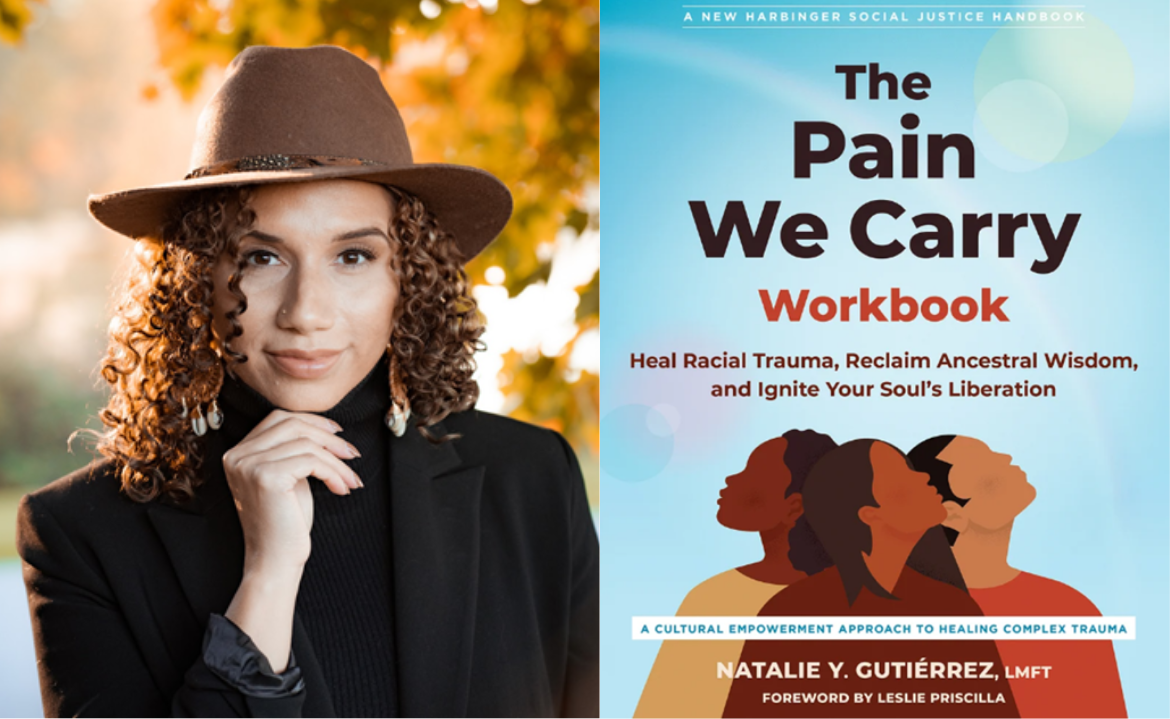Latinx Heritage Month is largely seen as a celebration of Hispanic culture and communities across the country, recognizing their contributions to the nation’s accomplishments and history.
“I love that we are celebrating ourselves in Latinx Heritage Month,” said Puerto Rican therapist and healer Natalie Y. Gutiérrez, while pointing out that Latinx and Hispanic communities are still “carrying a lot of trauma and a lot of colonial wounds that need tending so we can actually embody ourselves in fuller ways.”
This month—and beyond—it is critical that we also foster conversations around healing and taking action to support U.S. Latinx and Hispanic communities, shared Gutiérrez. We are living amid such turbulent times, with unsanctioned mass deportations, threats and intimidation against communities of color, and the elimination of critical resources to underserved populations.
“Alongside celebrating Latinx Heritage Month, we are also bringing light to what needs healing within us,” said Gutiérrez. “If we are just talking about the good—which I think we tend to do as a community,; we tend to be like ‘the past is the past; let’s move forward’—[in reality] we are not tending to the past…And the past does become the present.”
Based in New York, Gutiérrez has been running her own private practice—Mindful Journeys Marriage & Family Therapy—for over a decade now, with a focus on trauma therapy. And for 17 years, she has specialized in working with Black, Brown, and Indigenous adults who have Complex Post-Traumatic Stress.
As an author, Gutiérrez draws from her expertise and professional experiences. In 2022, she published “The Pain We Carry,” which has inspired the creation of her workbook that was released this past August.
“When we think about what we’re holding and the issues that we’re experiencing inside, a lot of it is also shared with our families, it’s inherited generationally,” said Gutiérrez. “But then the systems around us – the systems in which we exist in also impact our mental health very gravely.”
Her books intertwine best therapeutic practices with cultural knowledge to support individuals experiencing Complex PTSD.
“When we are actually seeing the individual in a culturally competent way, we need to really see the person as the whole picture and also think systematically about what they’re holding,” explained Gutiérrez. “So, it’s really exploring the story, the lived experience of the client, and also what is happening generationally—the legacy burdens, the legacy trauma that might be playing a role in whatever the client is feeling—and also what’s happening societally, because all of it is connected.”
In her work, Gutiérrez emphasizes the subtle role that colonialism and cultural history play within people’s emotional and mental health. Gutiérrez explained that colonialism continues to impact us today, in real time; It has long-lasting effects that continue to quietly impact us, and others are currently experiencing it first-hand—such as communities in Puerto Rico.
“[Colonialism] is not something that has just stopped or happened in 1492. The impacts of colonialism have ripple effects that we still feel today, and arguably are still happening today, around the world,” said Gutiérrez.
A specific example is how American society defines success. “Whose rubric of success are we using?” Gutiérrez asks. “A lot of the time, it’s the colonial metrics. We’re saying ‘you got to get all of the degrees, you have to have all the money, you have to have all the things’…But what about the things that aren’t quantitative that are maybe more qualitative? A lot of the ways we view the world can come from a colonial lens.”
In her work, Gutiérrez explores how certain traumas have been mistaken for cultural practices. A small, specific example is when children are threatened or hit with la chancla or la correa—a multi-cultural reference that comedians joke about and has become memes and gifs. It’s a socially accepted joke, but serious, vulnerable conversations about physical harm towards children remain taboo.
“I think, historically, we don’t talk about healing,” Gutiérrez said. “I understand it, because the reality is that it’s hard to talk about healing. When we talk about healing, we also need to face ourselves, we also need to face the ways we mess up, and maybe our caregivers also have to do the same.”
Learn more about Natalie Y. Gutiérrez and her work at https://www.natalieygutierrez.com/
